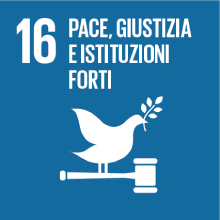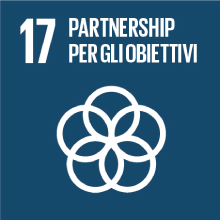HISTORY OF U.S. FOREIGN RELATIONS
- Anno accademico
- 2021/2022 Programmi anni precedenti
- Titolo corso in inglese
- HISTORY OF U.S. FOREIGN RELATIONS
- Codice insegnamento
- LM5730 (AF:342093 AR:186042)
- Lingua di insegnamento
- Inglese
- Modalità
- In presenza
- Crediti formativi universitari
- 6
- Livello laurea
- Laurea magistrale (DM270)
- Settore scientifico disciplinare
- SPS/05
- Periodo
- I Semestre
- Anno corso
- 2
- Spazio Moodle
- Link allo spazio del corso
Inquadramento dell'insegnamento nel percorso del corso di studio
Risultati di apprendimento attesi
a) a confident knowledge of the facts, concepts and characters of US foreign policy from the 19th to the 21st century, with an emphasis on the post-1945 decades;
b) a confident knowledge of the main interpretations concerning the drivers, the making and the outcomes of US foreign policy over the decades;
c) a good degree of ability in treating various kinds of primary and secondary sources, to critically interpret them and to elaborate their critical interpretation in both written and oral form;
d) the basic methodological tools for the elaboration of autonomous research work in the field of US foreign relations history, with possible applications also beyond the field;
e) a good degree of knowledge of the lexicon of US foreign policy, finalized at the oral and written communication of historical and political contents with clarity and precision.
Prerequisiti
Contenuti
Testi di riferimento
1) the class notes, the slides from the classes and other materials (videos, documents, etc.), which will be made available on Moodle;
2) a reference textbook such as Michael Hunt, The American Ascendancy, Chapel Hill, University of North Carolina Press, 2007 (or any other comparable textbook that you may already possess, after discussing the matter with the teacher).
3) any other appropriate source, as required by their final paper (see description of evaluation modes).
Students who do not attend the class can prepare the exam on:
1) a reference textbook such as Michael Hunt, The American Ascendancy, Chapel Hill, University of North Carolina Press, 2007 (or any other comparable textbook that you may already possess, after discussing the matter with the teacher).
2) a complementary textbook on US foreign relations after WWII, such as: M. Cox and D. Stokes (eds.), US Foreign Policy, Oxford, Oxford University Press, 2012, chapters 3, 4, 5, 6, 12, 13, 14, 15, 16 and 17
3) any other appropriate source, as required by their final paper (see description of exam).
PLEASE NOTE: In all parts of the course, the lectures by the teacher in class provide guidance to the reading materials and emphasize their methodological and epistemological foundations, in order to provide students with a clearer perspective on how they themselves can build an interpretation of international affairs based on sound historical knowledge. Students who do not attend the class will have more readings to do for the simple fact they will need to make up for some missed information. In any case, both the students who attend and those who do not attend the class have to take the assigned readings seriously: neither the class notes alone, nor the summaries of the class lectures or of the readings that may circulate online or elsewhere, can be considered sufficient to prepare this exam in a satisfactory way (and in some cases, such material may be simply detrimental).
Modalità di verifica dell'apprendimento
1) Evaluation in itinere (available for "attending" students only)
As a norm, the learning outcomes of attending students will be evaluated in itinere as follows:
a) participating actively and constructively in the class discussions will contribute up to 15% of the final grade, in particular with regard to the active discussion of the final papers.
b) a written test via Moodle around the 8th week of the course will contribute up to another 25% of the grade. The written test will be "open books" and will require students to answer to two questions relating to the general program (main textbook). The questions will be formulated so as to allow to verify the acquisition of the notions related to the program (events, actors, processes, concepts), the ability to elaborate original answers, and the ability to communicate contents with clarity and precision.
c) students will then prepare, in groups of 3-4 participants, a final paper of some 3500 words (excluding notes and bibliography) on a topic in the history of US foreign relations of the 1970s or 1980s (to be decided collectively in class in the early weeks of the course): they will present and discuss their papers in class in the final weeks of the course (up to 25% of the final grade).
d) three weeks after the end of the course, they will turn in via Moodle the updated final version of their papers, which will have to show a confident knowledge of the literature on the given subject, as well as the ability to critically treat the sources about it, to frame the topic critically, and to communicate critical and structured contents with clarity and precision (up to 35% of the final grade: same grade for all group participants).
Please note: not all "attending students" need to opt for this mode: those who wish to take the "final exam" can always do so (see point 2, below). Also: those "attending students" who are not satisfied with their results from the "in itinere evaluation", can always take the "final exam", after discussing this with the teacher.
2) Final exam (mandatory for non-attending students, but available also for attending students)
In this case, the learning outcomes for both "attending" and "non-attending" students will be evaluated after the end of the course as follows:
a) an individual paper of about 3500 words (excluding bibliography and footnotes) on a topic in the history of US Foreign Relations of the 1970s or the 1980s, discussed with the teacher by 15 November 2021, 15 March 2022 or 15 June 2022 (depending on the chosen examination session). The paper must be uploaded on Moodle one week before the chosen exam session. In addition to being evaluated as such (40% of the final grade), it will be the subject of a question in the context of an individual oral exam (20% of the final grade). Overall, the paper and its oral discussion will serve to verify the knowledge of the literature on the given topic and the ability to critically treat the sources on it, as well as the ability to frame the topic critically and to communicate strctured and critical contents with clarity and precision.
b) two sets of questions at the final oral exam, concerning two different topics covered in the reference textbook(s) (40% of the final grade ). This part of the oral exam will verify the acquisition of the notions related to the program (events, actors, processes, concepts) and the ability to communicate critical contents in the history of US foreign relations with clarity and precision.
The final oral exam has a duration of some 30-40 minutes.
Modalità di esame
Metodi didattici
Altre informazioni
Students with disabilities can contact the Disability and Accessibility Office (disabilita@unive.it) to take advantage of the services available (e.g. alternative examination methods, readers, etc.).
The teacher is easily available for questions concerning the course at his office hours and by email at duccio.basosi@unive.it. Emails have to be written in a formal style (not "Hi prof." or "Salve prof.", but "Good morning", "Buongiorno", and the likes). Please use my e-mail address parsimoniously and do not think of it as an instant messaging app, nor as a customer care service: it is neither. Emails should not ask questions whose answer can be found in the information contained in this syllabus (e.g.: "what are the readings for this course?", etc.). In any case, I will not reply to messages which do not conform to the rules above.
Students interested in carrying out a master's degree thesis in History of US Foreign Relations can ask the teacher, after passing the exam, for the guidelines for the thesis (by writing directly to duccio.basosi@unive.it).
Obiettivi Agenda 2030 per lo sviluppo sostenibile
Questo insegnamento tratta argomenti connessi alla macroarea "Cooperazione internazionale" e concorre alla realizzazione dei relativi obiettivi ONU dell'Agenda 2030 per lo Sviluppo Sostenibile



